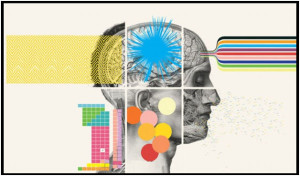
Recent British and American psychologists have found that being broke impedes brainpower as much as staying awake all night or losing 8 to13 IQ points. This research, published in the journal Science, suggests poverty feeds on itself by consuming “mental bandwidth”.
Typically an average Intelligence Quotient (IQ) test results in a range of 90-110 points with a score of 100 as the median for most people. A persons score below 70 is a possible indication of developmental delays related to intelligence. But what does this really mean..?
Intelligence measured in this type of test is an indication of our mental capacity for how well we process information and our ability to retrieve it. The authors propose that “being poor can impair cognitive functioning, which hinders an individual’s ability to make good decisions and can cause further poverty.”
The problem with this type of grand research is that terms such as poor, poverty and a clear description of what types of mental bandwidth impacted do not seem to be provided. While it is recognized that the challenges of financial poverty and being poor could distress people and prevent challenges to positive conditioning reflected in a positive mental attitude (PMA). The mental message that nothing good can happen or that stresses associated with socioeconomic situations are not real, are just wrong.
IQ tests don’t measure creativity, emotional sensitivity, social competence and many other skills that fall under the general description of “intelligence”. In other words a person with average intelligence can be exceptionally creative. Your IQ typically does not change over your lifetime so how can we make the argument that an arbitrary measurement of intelligence could be holding us back.
I think that suggesting that any group of people being more likely to make mistakes, and bad decisions that amplify or perpetuate financial woes should be an indication of a need for basic education and skills enhancement or training in these areas.
In one of the research studies, half of the participants were first asked to think about what they would do if their car broke down and the repair cost $1,500 – designed to kick off worries about money. It was proposed that among these people that performance dipped significantly.
Increasing the mental bandwidth for people in poverty can be accomplished by a change in how we think positively. The old adage that the glass is either half full or half empty has been replace with a new one where the glass is considered ½ full of water and ½ full of air – a stronger positive way to look at things. Additionally how we characterize people with financial challenges (in poverty or poor) in social economic personal tone can have a tremendous impact. If people are seen by others as having the mental capacity, bandwidth and opportunity to increase the financial status we typically find that opportunities are available. If we suggest that nothing good can happen and impose negative conditioning it is likely that we could see the social intelligence of any group to drop.
If I was the CEO of a major company and identified that a specific department was having problems making the right decisions the recommendations for them would be to follow the 7 Steps to Better Decisions proposed by Catherine Price.
1. Identify your goal.
As David Welch, PhD, professor of political science at the University of Waterloo in Ontario and author of Decisions, Decisions: The Art of Effective Decision Making, explains, “People who aren’t self-reflective are going to end up making bad decisions because they don’t really know what they want in the first place.” Before you switch jobs, ask yourself: Do I really want a different career? Or do I just want a different boss? Don’t make a decision based on the wrong problem.2. Eliminate choices by setting standards.
If you’re trying to buy a digital camera, list the features you’ll actually use. Any camera that has them is therefore good enough for you; ignore anything fancier. Speaking of which…3. Don’t worry about finding the “best.”
How good you feel about your decisions is usually more important than how good they are objectively.4. Be aware of biases.
They can lead smart people to make dumb decisions. For example: We hate to lose more than we like to win, which can result in behavior such as holding on to a tanking stock instead of accepting a loss. We remember vivid examples better than facts, which is why plane crashes stick in our heads more than statistics on air safety. And we’re susceptible to how information is framed—a “cash discount” is more appealing than “no credit card surcharge.” Keeping these biases in mind can help you think clearly.5. Try not to rush.
People tend to make poorer choices when they’re in a bad mood or under a lot of stress. When facing a complex decision, use your conscious brain to gather the information you need, and then take a break. Go for a walk. Spend a half hour meditating. Take a nap. Have a beer. The idea is to give your unconscious mind some time to do its work. The decision you make afterward is more likely to be the right (or at least a perfectly acceptable) one.6. Don’t sweat the small stuff.
When possible, eliminate the need for decisions by establishing rules for yourself. You will go to yoga every weekend. You will not have more than two glasses of wine. You will buy whatever toilet paper is on sale.7. Do a postgame analysis.
After each decision you make, ask yourself how you felt afterward and what about the experience you can apply in the future.From the May 2011 issue of O, The Oprah Magazine.
Too often the discussion is reduce to good thinking versus bad thinking or right thinking versus wrong thinking when making decisions. The discussions should be directed more importantly into “How” did they make decisions, and sharing “What” they learn from them.
References
- http://radiousa.com/news/articles/2013/aug/29/study-finds-poverty-reduces-brain-power/
- http://www.theaustralian.com.au/higher-education/poverty-costs-13-iq-points-study/story-e6frgcjx-1226706830753
- http://www.oprah.com/spirit/How-to-Make-the-Right-Decision-How-to-Decide/2
- http://en.wikipedia.org/wiki/Intelligence_quotient
The author

Dale S. Deardorff (d.s.deardorff@att.net) is the director of innovation and strategic thinking with The Rocky Peak Leadership Center. He is a self proclaimed innovation futurist with a focus on systemic and process based innovation methods involving individual, group and organizational creativity thinking tools and processes. He designed and implemented innovation and creativity workshops, tools and enterprise idea programs.

